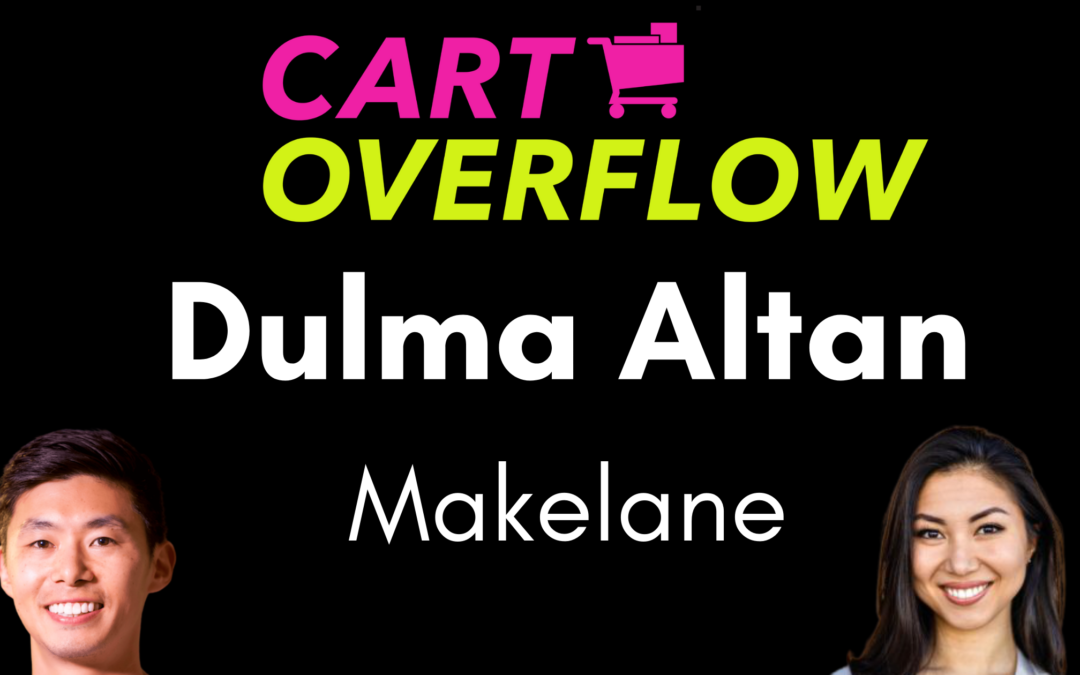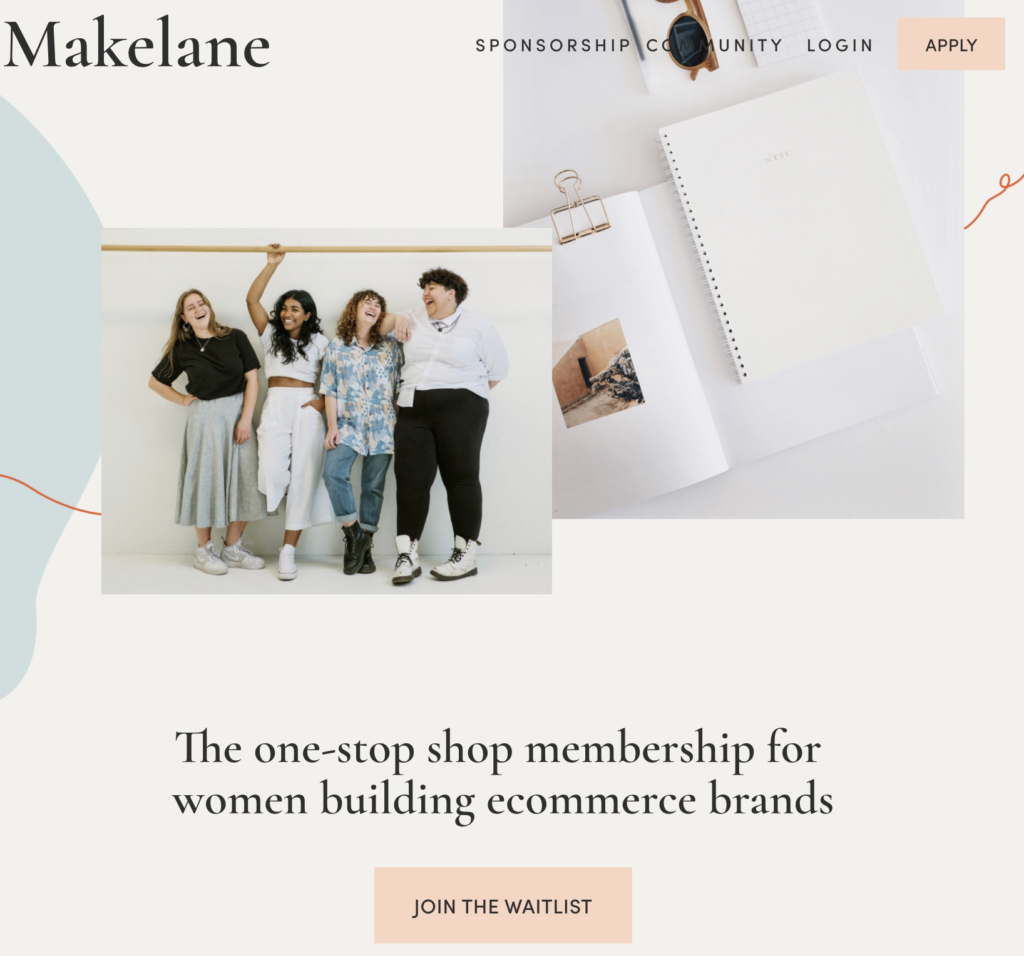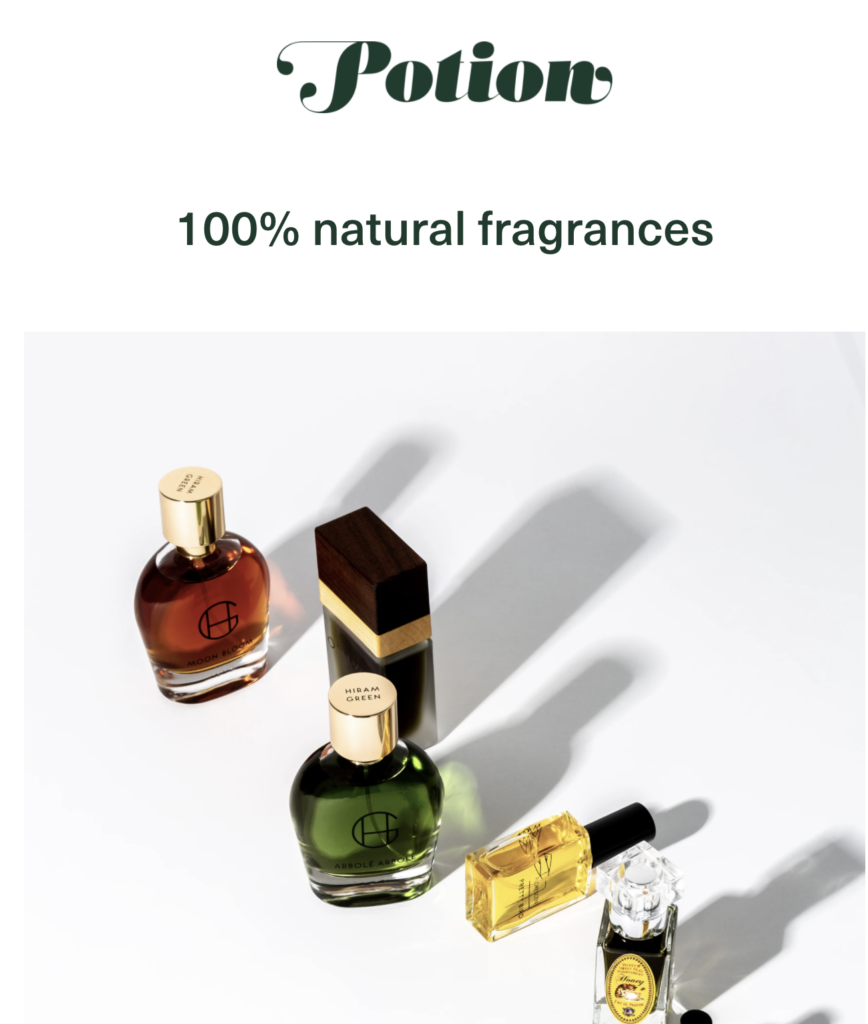Dulma Altan is the founder of Makelane, a platform for accelerating women-owned businesses. She’s also the founder of Potion, the world’s first clean fragrance retail store.
Dulma has a unique birds-eye perspective in helping a wide array of ecommerce brands, in different niches and at different stages of growth. She shares her perspectives on how these brands can differentiate, which she distills down to three things: commerce (the product), community, and content.
She shares her own experiences and lessons in building a great online community, and which brands do a great job of this today.
And she highlights her own journey and challenges in launching her own ecommerce product, Potion.
What Is Makelane?
DULMA ALTAN: Makelane is an online education platform for accelerating women owned ecommerce brands. We bring guest speakers who are experts in their fields and have them teach about the sub-topics within any commerce that are most helpful to women starting out and looking to grow their businesses.
For example, we’ve had Nick Sharma teach how to launch a DTC brand. We had Emily Heyward lead a workshop on branding for DTC, things Facebook ads and lots more. So it’s really all about how do we create an online platform that makes it super easy to access all the knowledge you need to start and scale your eCommerce business in one place.
Is there a playbook for companies that you have seen that works to help brands build an audience? Especially if there is a limited budget?
DULMA ALTAN: That’s the million dollar question, right? I think when you’re on a budget (ie you don’t raise millions in capital from VCs), and you’re still trying to stand out and break out in a saturated space, you have to some sort of authentic story at the core of the brand.
I see that being related to a personal pain point that that founder experienced themselves because especially when it comes to this might be true.
I think there are a lot of women owned brands that have the founder story at the helm of the brand story. And that actually helps a lot because people find it easier to connect to a human. And if you’re an underdog, it actually helps you because people love cheering you on.
They love seeing that journey that you’re going through and they love being part of that entrepreneurial journey with you sort of vicariously. So I think to answer your question. I think what helps is starting with a strong brand story.
And part of that is a strong founder story. And what often creates a good founder story is some authenticity in how you came up with that idea and why you want to solve that problem.
How will brands differentiate as the market becomes more competitive and saturated?
DULMA ALTAN: I think that there are three pillars: commerce, community and content. and all of those sort of play into each other.
I think some really good examples of this: Goop, even though they did start with star power of Gwyneth Paltrow…but, but they’ve been able to execute on that. Well, obviously Glossier started with media (with the blog Into The Gloss). And there’s Violet Gray. there are a lot of brands that just leverage that really, really well. And I think you’re absolutely right. That’s going to be the future because just products that’s not going to be enough moving forward—you need to have content and a community.
Other brands: Away did that, Outdoor Voices did that. I think Casper tried to do that
For entrepreneurs just starting out, do you think it’s more important to start with the product and build from there, or an audience and introduce the product later?
DULMA ALTAN: I think 100% you should start with an audience, especially these days. Especially if you’re a scrappy entrepreneur, who’s probably solo or whatever it is. You don’t have a lot of resources.
You have to earn those early advocates and build relationships with them, get them excited, have them root for you, and then get them involved in the process.
And that can look like maybe you have an Instagram profile and you’re sharing stories of what’s happening behind the scenes. Maybe you’re polling people so they can help you choose which packaging to decide on. or maybe you’re just asking them about their feedback on other product developments or whatever it is.
I think that kind of engagement helps not only with product development, it helps with idea validation and it helps build this audience of people ready to buy from me when you launch, because what a lot of brands do is they think, “if I build it, they’ll come….If I have an awesome product, everybody’s going to realize how amazing my product is. And then the sales are going to start coming in.”
But people underestimate how much effort you have to put into building an audience ahead of time. And right now that happens on social media and that happens on your email list.
How did you go about launching a natural fragrance brand, Potion?
DULMA ALTAN: I had been working in Silicon Valley as a digital marketer. I worked at Google, but I always wanted to start my own thing. I love DTC brands, I even wrote my senior thesis at Brown about Warby Parker, that’s how much of DTC nerd I am.
I always had a soft spot for interesting new brands and I wanted to start my own, but I didn’t want to just start a business for the sake of it.
I want it to be really authentic for, for better or worse. One day I was looking for a fragrance, a 100%, all natural fragrance to buy as a Christmas gift for a family member. And I realized I couldn’t easily find it–there were all these sort of claims natural and nontoxic that I had to validate.
I didn’t exactly know how to find the full ingredients list because for fragrance, there’s an FDA loophole in the United States that says you don’t actually have to disclose your ingredients. That was really confusing to me as a consumer.
So I realized there’s actually a gap in the market here because if I want clean beauty products, I can’t find a place to find them.
So basically that was the idea I reached out to a bunch of brands and made this giant spreadsheet of all these artists and perfumeries I wanted to reach out to. I started calling and mailing them almost none of them responded back to me…
I eventually got connected to a woman who blogged about natural perfumery. And she was the only person who wrote actively about natural perfumery online. So I got on the phone with her and about 10 minutes into our call, she said, “I love this. I want to be a partner. How can I help, let’s do this together?”
And I was great. She got the right brands on board, the brands that were not responding to me initially were happy to work with her because they already had a relationship with her. we got it off the ground with 12 different brands and we just offered a sampling program. That really was what helped us drive sales because when you’re buying fragrance from a brand you’ve never heard of, you want to try their stuff out before you buy.
And that’s what we did for two years. I bootstrapped it. you know, I would just use a lot of influencer marketing and guest posting and content marketing to drive sales. And that was a fun ride.
Where are there some opportunities and business ideas in the fragrance space?
DULMA ALTAN: I’ll give people listening three ideas for businesses that they could start if they want to.
- A subscription box for natural fragrances. kind of like Scent Bird. but they don’t do natural and natural is a growing. The thing that has a lot of demand behind it.
- a DIY kit where you give it the fundamental building blocks, the ingredients and the essential oils and the base. And then you give them a few quote unquote “recipes”. That could be both a fun sort of crafty thing, but it also ensure ensures that people end up with a fragrance that they really like, and that can be the ultimate signature scent, because everybody’s always looking for their signature scent.
- An affiliate model (like Fragrantica) where everybody goes to see reviews for other fragrances, but all clean fragrances. Fragrantica actually makes a lot on the backend.
You are a big reader. What are some books that you recommend to entrepreneurs?
DULMA ALTAN: There are few business books or sort of creativity or business or entrepreneurship related books that I really like and recommend to everybody. There are two by the same author, Steven Pressfield: The War of Art and Turning Pro. They’re both about the creative process, but I think a lot of the creative process can actually be, applied to the entrepreneurial process because in a way it is a creative process.
And the takeaway from that is if you want to do something, if you have an idea or if you want to take the leap, go for it!
Just go for it and also be a professional about it. Really show up and eventually good things will happen. Then you’ll either learn and you’ll pivot or something will happen.
People in eCommerce and in the world of business and startups, they talk a lot about the tactics and about the strategies and that all is important, but the mindset stuff is the foundation that makes it all work. And it’s the foundation that helps to manage yourself as a founder, which is so important.
Sign up to receive a weekly round up of the best ecommerce marketing strategies and news every week. Free. Positive ROI guaranteed 😃



